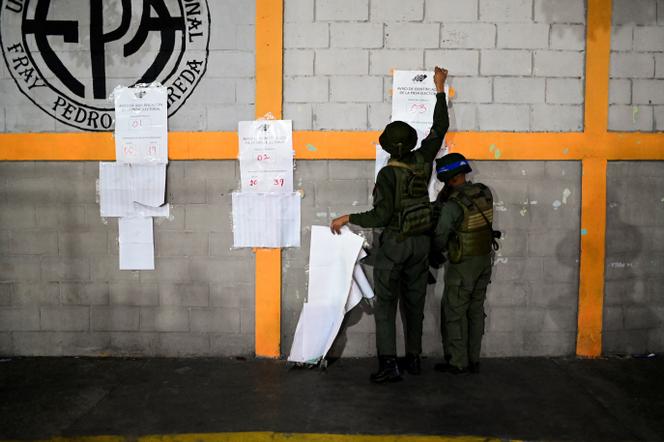


Nicolas Maduro's re-election as Venezuela's president is not convincing. Like Venezuelan voters, a large part of the international community is demanding to see the "records" that allowed the electoral authorities to proclaim, late on the night of July 28-29, the victory of the incumbent president (51.2% of the vote) over his main opponent, Edmundo Gonzalez (44.2%). The "records" are the tally sheets produced when the polling stations closed, based on the results issued by the electronic voting machine.
Maduro has appeared non-stop on live TV, angry and vehement, denouncing a "criminal maneuver" by the opposition and interference from abroad. In the streets, he is cracking down on protesters. But he did not show the tally sheets. On Thursday, August 1, Brazil, Colombia and Mexico in turn asked the Venezuelan authorities to "publish details of the results office by office as soon as possible." The three countries, which are governed by left-wing parties, had previously enjoyed good relations with Caracas. Washington went further. "It is clear (...) that Edmundo Gonzalez Urrutia won the most votes in Venezuela's July 28 presidential election," said US Secretary of State Antony Blinken in a statement. He referred to the "overwhelming evidence" provided by the opposition.
Venezuela boasts the "best electoral system in the world," a phrase coined by former US president and Carter Center founder Jimmy Carter, who in 2012 praised the technical merits of a fully computerized voting system. The observers in Caracas all agree that "the voting machines and the data transmission system are very reliable."
Voters cast their votes on a screen. The machine records their choice and issues a paper ballot, which they place in a ballot box. When the polling stations close, the machines transmit the data to the "tabulation room" of the National Electoral Council (CNE) in Caracas. They then issue a paper strip – known as a "chorizo" in electoral jargon – with the printed results. Once signed by the members of the polling station, the strip becomes the "minutes," and the witnesses present from the political parties receive a copy. Half of the ballot boxes are then opened, and the paper ballots are counted to confirm that the result matches that of the electronic vote. "This double trace of the vote, electronic and paper, is what makes the system inviolable," said Griselda Colina, a specialist in electoral issues.
For the July 28 election, the opposition coalition parties succeeded in appointing witnesses in almost all the 15,000 polling stations. On the evening of the vote, the leader of the opposition, Maria Corina Machado, begged them not to leave without a copy of the minutes. A large number of incidents were then reported. Some witnesses described being removed from the polling stations by force.
You have 45% of this article left to read. The rest is for subscribers only.
